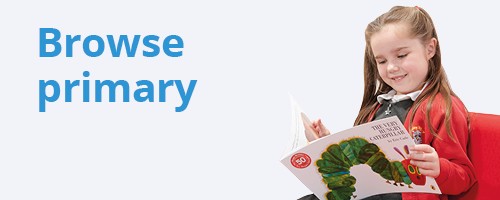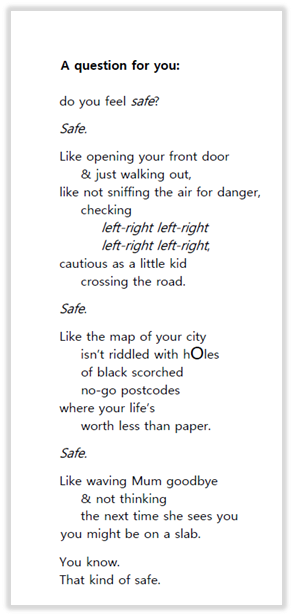Please note that our final date for delivery (schools and libraries) this year will be Thursday 19 December. You can continue to place your orders online throughout the festive period, and delivery will recommence from Monday 6 January 2025. We wish all of our customers a restful Christmas break and a very happy new year.
For help, advice and telephone ordering call our team on 0121 666 6646
Are you sure you wish to delete this basket?()
This action cannot be undone.
Sorry, something went wrong
Please report the problem here.
Changing lives with the power of verse: Tia Fisher's Crossing the Line
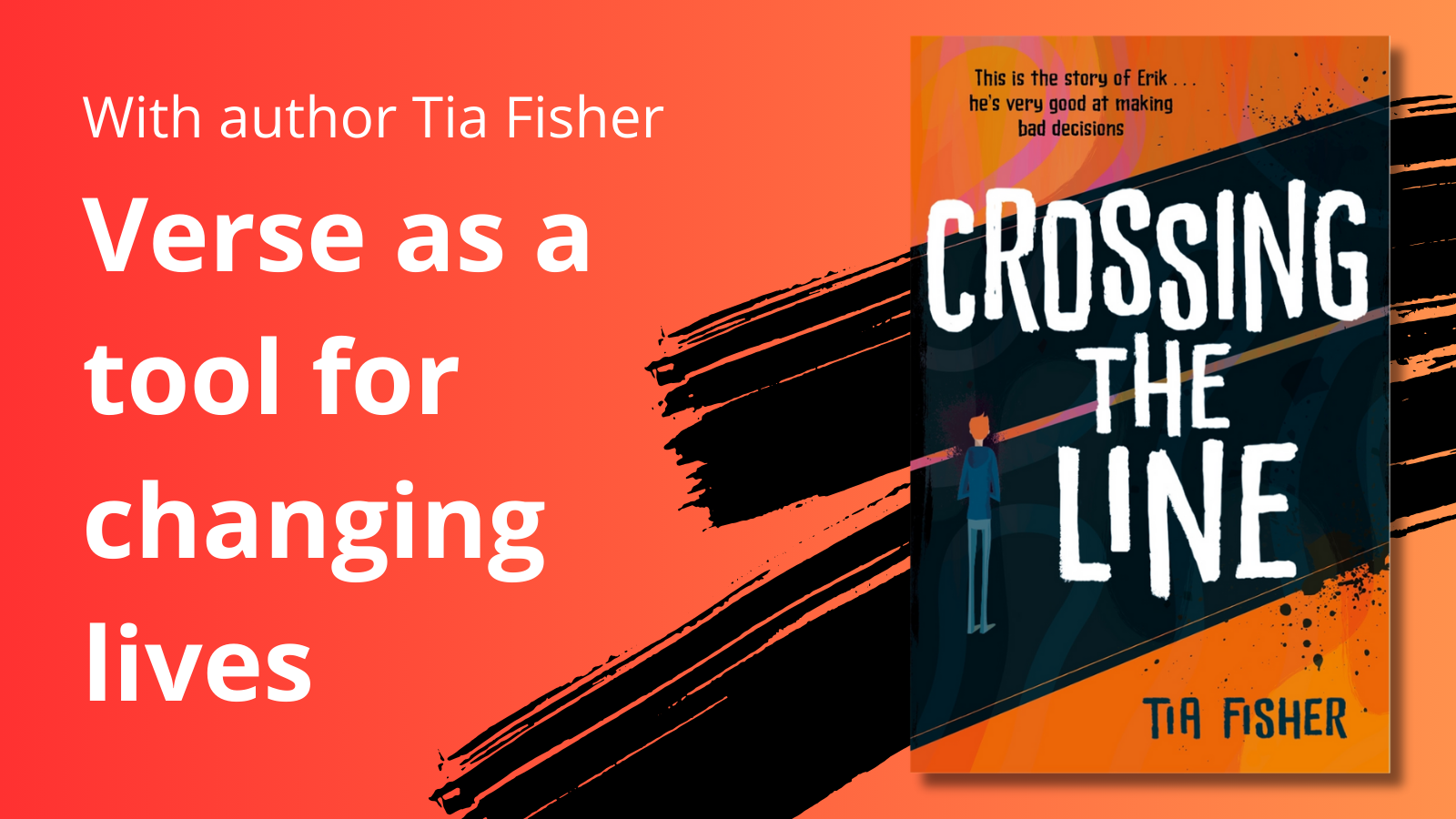
May 20th 2024
There is no one way to reach teenagers who feel they aren't the "type" to read. Minimal reading experience or external encouragement can make reading attempts daunting for these students. But, as we know, encouraging them to pick up a book and read for pleasure can have a profound, even life-changing, influence.
Debut novelist Tia Fisher champions the verse novel format as a tool to reach reluctant readers. Shortlisted for the Yoto Carnegie medal for writing, her verse novel Crossing the Line explores county lines and the gang grooming experienced by young people across the UK. Tia takes over the blog tells us why verse novels are the right tool for the job, and how you can use the format with your class.
 |
Tia Fisher | Author Crossing the Line is Tia's debut novel. When not writing, she works in a busy children's library in South London where matching a child with the right book is the highlight of her day. Tia is taking her master’s degree in writing for young people at Bath Spa University. She has published poems in The Rialto and been longlisted for the Mslexia Children’s Novel Award. |
The right book at the right time could change or save a young person’s life. It could be the first time they feel seen and understood, or give them a lens to better understand others.Young adult fiction and books for teenagers are a safe space to raise and explore difficult topics, which is exactly what I hoped to achieve with my debut verse novel, Crossing the Line, published with Hot Key Books in 2023.Why write about county lines?I wish my story had been a work of pure of imagination, but it was based on what happened to the son of a close friend who became involved with a drugs gang when he was thirteen. Crossing the Line was carefully researched with, and is supported by, The Children’s Society, who advocate for young people involved with county lines. Although some of the plot is fictional, the grooming process is not, and what happened to my character Erik actually happens to hundreds of children every day: the victims don’t realise they’re being exploited by drugs gangs because they’ve been manipulated into thinking it’s their choice. That’s where credible fiction can help by providing an alternative narrative to what they’re being told outside the school gates. |
Do you feel safe? from Crossing the Line by Tia Fisher |
Why write in verse?
I wrote in verse to make it more accessible to teens who may find large amounts of text off-putting, and who may struggle to finish a chapter, let alone a whole book.
A school librarian recently wrote to me about a Year 8 student thought to be at risk of gang grooming. While he came to breakfast club in the library, it wasn’t cool to be seen holding a book, let alone reading one. The librarian really wanted him to read Crossing the Line, so she persisted. Eventually, he was brave enough to open it – and three hours later, was still reading on the library sofa, given time off timetable by a school which understood how important this was.
Since finishing it, not only has he now assured his teachers he wouldn’t make the same mistakes as Erik, but he’s told anyone who would listen that books are brilliant, he has taken three home for half term and wants to start a book club. As the librarian said to me: Job done.
"I wrote in verse to make it more accessible to teens who may struggle to finish a chapter, let alone a whole book." |
Verse is engaging
Would the Year 8 student have stuck with the same story told in a black block of type? I doubt it.
Young people may need a little persuading that narrative verse is for them, but if they’re used to song lyrics, graphic novels for teens or scrolling through messages on their phones, then they’ll find a verse novel not too large a leap. At about a third of the word count of their prose cousins, verse novels are a pacy read which give a reader the buzz of turning pages, of finishing a book.
|
One by One from Crossing the Line by Tia Fisher |
In Crossing the Line, I wove in other media and formatted the text to bring the page alive and keep my readers interested. There are plenty of attention-grabbing calligrams and concrete poems to deliver a message for visual learners before any decoding of the words. The white space gives a moment of rest to some readers who are neurodiverse or who have English as a second language. The brevity, strong voice and rhythm of verse can turn reading aloud in class – even shared reading – into a pleasure. Verse is punchyVerse novels are intense and immediate, exciting and empathy-provoking. Between the poems and the pared-down syntax are gaps into which a reader can insert their own experience; the reader can step inside the narrator’s mind to make the empathic leap. Crossing the Line is an easy read only in one sense; joining Erik in his downwards spiral is an emotional journey. |
Diving deep into the poems
I stripped my syntax to the bone and hid the poetic devices like courgettes in a pasta sauce – but they’re there.
Crossing the Line can be read through at a gallop but individual poems can be examined for a deeper dive into literary craft. What was omitted and why? What was the effect of formatting? How do the relationships between the characters impact on the plot? There’s a good deal of craft to unpack.
"Verse novels are intense and immediate, exciting and empathy-provoking." |
Working with Crossing the Line
Book clubs, English, drama and PSHE teachers can use Crossing the Line in their classes to provide a safe space for children to discuss issues around county lines, poverty, risk-taking, choice-making and bereavement. I’m so pleased that schools are reading it across whole Year 8 and 9 cohorts.
Suggestions for class or book group guided reading activities and discussions are available for free on my website, and at the back of the book is a page signposting where to go for help if you’ve been affected by any of the issues raised in the book.
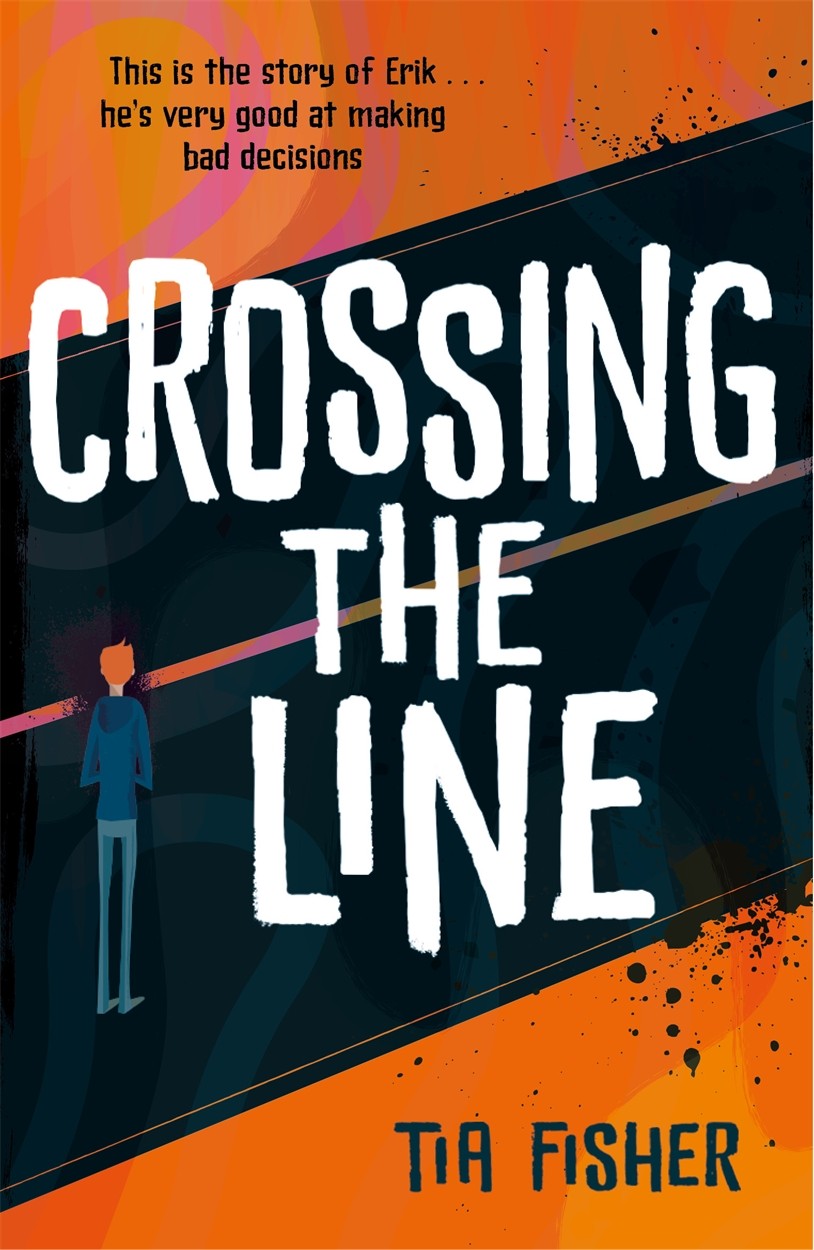 |
Crossing the LineWhen the difficulties at home affect Erik's behaviour at school and he is pushed into the company of the 'bad boys', Erik is tempted to earn some easy money... But this kind of money is never truly easy to earn and comes with a terrible cost. Written in verse, the thoroughly-researched narrative exploring how teenage boys can be drawn into County Lines pulls the reader in from the very first line, as Erik makes some good - and some very bad - decisions... £5.91 Save 26% This title is in our class sets offer! Buy 30 or more copies and get 35% off the RRP. |
|
More secondary verse books for teenagers
 |
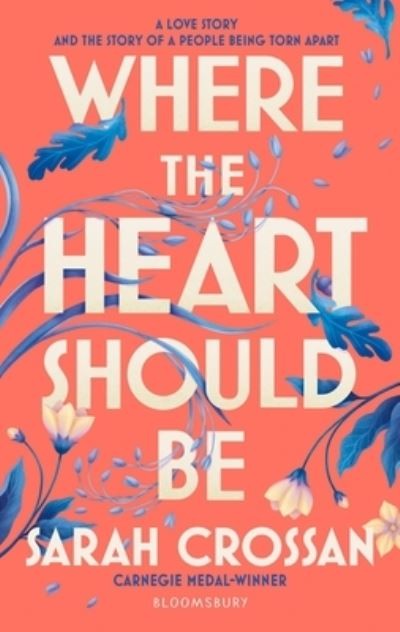 |
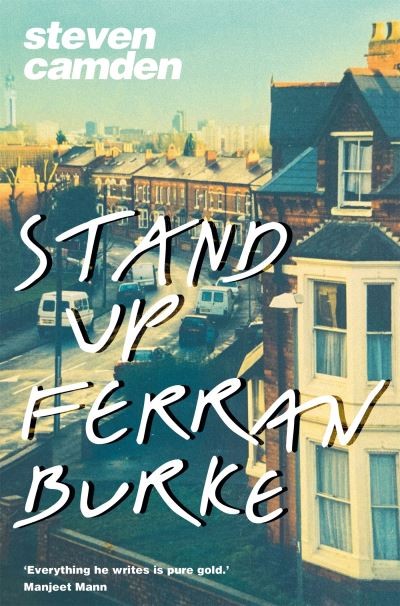 |
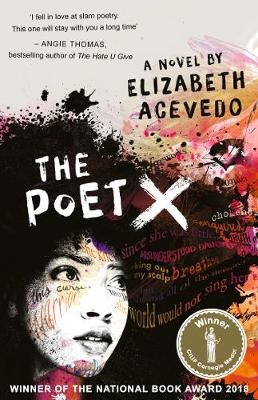 |
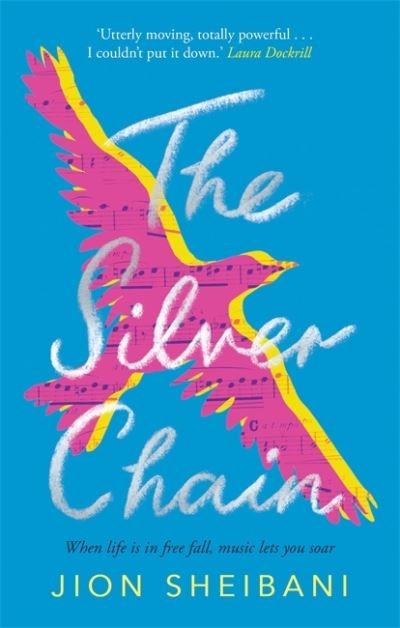 |
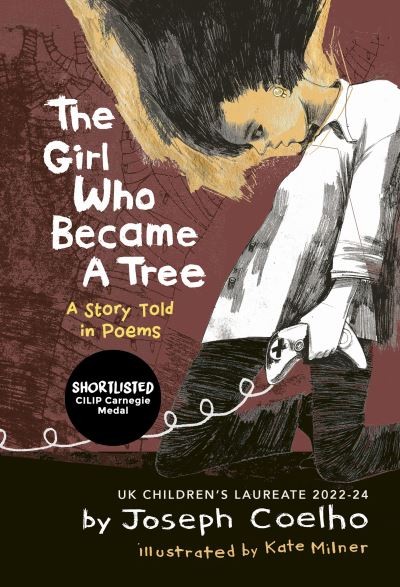 |
| 📚 BROWSE VERSE NOVELS for SECONDARY |
|
|
Read next:How to ease the transition from KS3 to GCSE |
|
 |

